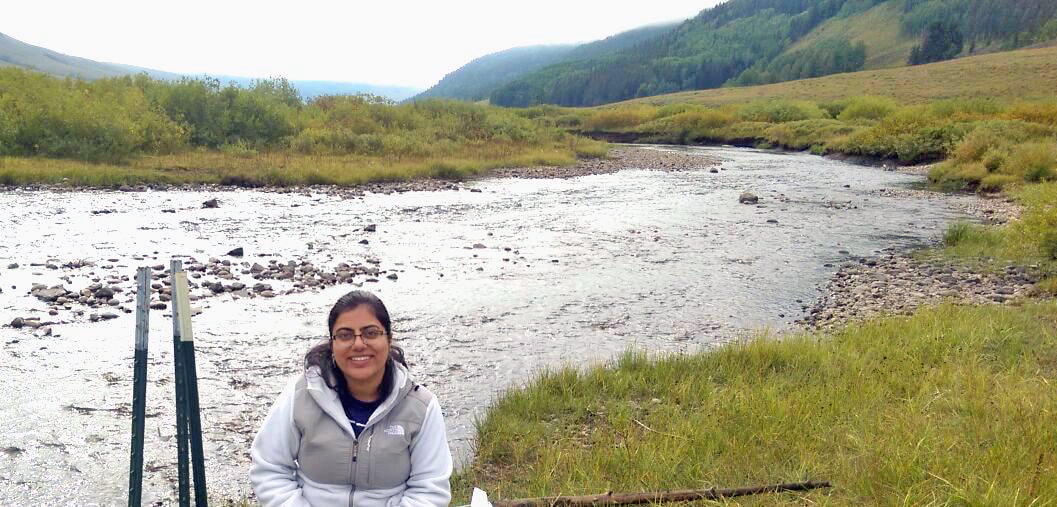Ecohydrology to me is a synonym for interdisciplinary science of the critical zone.
What are your undergraduate and graduate degrees in?
My undergraduate degree is in Agricultural & Food Engineering with a specialization in Water Resources Development & Management from the Indian Institute of Technology, Kharagpur. I received my Ph.D. from the interdisciplinary Water Management and Hydrological Science program at Texas A&M University, where I studied the effect of subsurface heterogeneity on preferential transport and biogeochemical processes in porous media.
How did you arrive at working in/thinking about ecohydrology?
As part of my dissertation and postdoctoral work, I have worked extensively on identifying biogeochemical hot moments and their linkages to hydrologic processes such as water table variations and snowmelt events in different terrestrial environments (e.g., municipal landfill, riverine floodplain, arctic tundra). A natural extension of this work seemed to be including ecological dynamics and understanding its linkages to hydrological processes and biogeochemical fluxes both above and below ground.
I got an opportunity to work on these linkages and through an ecohydrology lens as part of the Department of Energy’s Biological and Environmental Research (BER) funded work on a mountainous headwater catchment in Colorado. Here, as part of this BER-funded Watershed Function Scientific Focus Area at the Berkeley Lab, we are focused on determining how perturbations to mountainous watersheds (e.g., floods, drought, early snowmelt) impact the downstream delivery of water, nutrients, carbon, and metals. My role in this project is to simulate how changes in the hydrologic cycle, particularly early snowmelt or reduced snowpack, impact vegetation phenology and elemental fluxes to the river using a mechanistic representation of the key processes in an ecosystem model.
What do you see as an important emerging area of ecohydrology?
The integration of natural observatories and controlled testbeds that can collect, interpret, and assimilate ecohydrological, climate and biogeochemical data at multiple scales to build a systems level understanding of the watershed we rely upon. I also see the community growing and combining methods from diverse disciplines, including atmospheric science, micrometeorology, biogeochemisty, molecular biology, mathematics, statistics and advanced computing, and through collaborations across fields. Really, it's the convergence of these disciplines that’s so exciting.
Do you have a favorite ecohydrology paper? Describe/explain.
My favorite is “Shifting Dominance Within a Montane Vegetation Community: Results of a Climate-Warming Experiment” by John Harte and Rebecca Shaw. This science article opened up the idea that there is a critical need to change and work together as a community so that we can leverage knowledge from diverse disciplines to understand and predict the implications of shrubification and other plant community shifts that are beyond the range of previously observed variability.
What do you do for fun (apart from ecohydrology)?
I love to travel and explore new corners of the world. Cooking is also a passion and major stress reliever for me.

 RSS Feed
RSS Feed